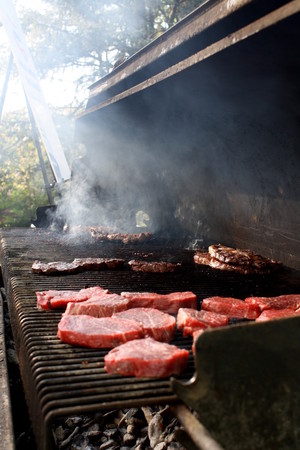17 Aug Fri 2018
Have you been “Greenwashed”?
In a world saturated by sound bites and marketing spin it is only reasonable to expect that our food choice conscience would be pricked while standing in the grocery store or searching the online food marketplace. Terms like natural, sustainable, eco-friendly, green, humane, local, cage-free, free-range, free-farmed, grass-fed, grass-finished, biodynamic, antibiotic-free, hormone-free, organic, etc. etc. come at you with abandon. Is it any wonder that consumers are confused?
Did you know that it has been estimated that there are 455 eco-labels across 25 industry categories, from energy and clothing to food and household cleaners. It is basically the “wild west” out there in “label land”. And, the bulk of these “eco-friendly” labels are not regulated or based on truly verifiable standards.
From the standpoint of meat, and specifically beef, the best way to know where your beef comes from is to purchase directly from a local farmer who you can visit and get to know, see the animals, and talk about husbandry practices. And, I don’t mean at the farmers market necessarily although that might be where the initial contact is made and where the conversation starts. But, at that venue, the $1000 question must be; “Can I visit your farm and see the animals?” If the answer is no, I think we might have a problem with transparency and I would run away quickly!
I also commonly get questions about “online” meat sales (both one-time sales as well as some of the meat subscription/delivery services) and the integrity of that food marketing system relative to their marketing claims and labels. Something like, “Can we trust the meat available online?” The short answer is “maybe”. The longer answer involves a deeper look at the issue of verifiable transparency in both sourcing and label claims. It also involves precise definitions of terms such as “local” or “sustainable” or “natural”. And this is where the water gets very muddy.
Hard Questions May Bring Clarity
What can we really expect in terms of transparency in the new digital food economy? What should we expect in terms of honestly-defined sourcing? What does “from various farms in the Midwest” really mean? Does imported meat fit your definition of sustainable or local and is it actually source-verified? Not to mention additional questions about animal welfare, food safety, or even reliable meat quality. Oh, and God help us, the illusive carbon footprint question!
The Grass-Fed Dilemma
Here is a perfect example of what I am describing. One of the fastest growing beef categories is “grass-fed”, whatever that means. You see, back to the wild west, just about every cow on the planet has eaten “grass” (pasture, hay etc.) at some stage of its lifecycle so might qualify for a “grass-fed” label. So, the question to ask is what is it you are really after as a consumer? Is it grass-fed, grass-finished, no grain ever? What about “grain on grass” or “all roughage” or “all vegetarian diet” (like a cow might be eating a steak) claims? Does that mean “grass fed”? I know your head is spinning!
The bottom line is that as demand for a specific product grows and outstrips the reasonable local or domestic supply, the potential for deceptive marketing claims and fast-talking “spin” abounds. How do you guarantee that as a consumer you are getting what you think you are getting?
My advice to our customers who feel “greenwashed” is very simple. Educate yourselves, examine label claims, ask hard questions, demand transparency and truth, and ultimately, put your money where your trust resides.
At Hedgeapple Farm you can expect source-verified (conception to consumption), grass-fed and grass-finished (no grain ever) Angus beef raised humanely without hormone implants or antibiotics, sold by the cut, by the pound, with exceptional customer service and a 100% satisfaction guarantee. And that’s no marketing spin!

